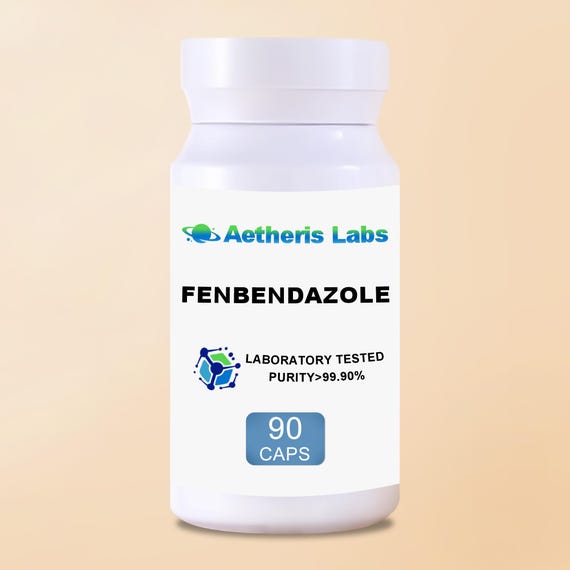fenbendazole capsules: Future Research and Potential Applications
Exploring the Devices Behind Fenbendazole and Its Impact on Pet Health And Wellness
Fenbendazole is a widely utilized anthelmintic known for its effectiveness versus various parasites. Its main system entails the inhibition of microtubule formation, which disrupts vital processes in these virus. Beyond its antiparasitic buildings, fenbendazole also appears to enhance immune actions and possesses anti-inflammatory advantages. Comprehending these diverse results can expose brand-new applications for animal wellness. Nonetheless, questions continue to be concerning its full capacity and safety account.
The Pharmacokinetics of Fenbendazole
The pharmacokinetics of fenbendazole, a widely made use of anthelmintic in vet medication, includes the research study of its absorption, distribution, metabolic process, and excretion within pet systems. After management, fenbendazole is swiftly absorbed from the intestinal system, with peak plasma concentrations occurring within hours. Its circulation is affected by elements such as cells binding and lipid solubility, enabling it to penetrate different tissues properly. The drug undergoes considerable metabolism largely in the liver, where it is converted into energetic and non-active metabolites. These metabolites contribute in the medication's overall efficacy and safety and security profile. Excretion takes place mostly with feces, with a smaller proportion removed through urine. The half-life of fenbendazole differs among species, which influences application routines. Understanding these pharmacokinetic properties is vital for maximizing its therapeutic use and making certain effective bloodsucker control in vet methods.
Mechanisms of Activity Against Parasites
Fenbendazole applies its antiparasitic results mainly with the restraint of microtubule formation in bloodsuckers. This disruption affects their architectural honesty and mobile features, resulting in impaired basal metabolism. Consequently, the drug efficiently compromises the survival and recreation of various parasitical microorganisms.
Restraint of Microtubule Development
Inhibition of microtubule development represents a crucial device where certain anthelmintic representatives, including fenbendazole, exert their effects on bloodsuckers. Fenbendazole binds to tubulin, a healthy protein that forms microtubules, interrupting the polymerization process essential for microtubule setting up. This disturbance hinders important cellular functions, including mitosis, intracellular transportation, and structural integrity. As microtubules play a critical duty in maintaining the shape and feature of parasitic cells, their inhibition causes cell cycle arrest and ultimate death of the parasite. This mechanism is especially effective against nematodes, as their dependence on microtubules for mobility and nutrient absorption makes them at risk to fenbendazole. The restraint of microtubule formation is a vital facet of fenbendazole's therapeutic efficiency in veterinary medication.
Disturbance of Energy Metabolic Rate
Disrupting power metabolism is one more essential device whereby fenbendazole targets parasitical microorganisms. This anthelmintic alters the power manufacturing pathways within bloodsuckers, primarily affecting their capacity to produce adenosine triphosphate (ATP) By hindering sugar uptake and interrupting mitochondrial function, fenbendazole limits the energy resources vital for the survival and reproduction of these organisms. Consequently, parasites become significantly at risk to environmental anxieties and immune actions. The interference in power metabolism not only affects the parasites straight however additionally lowers their capability to assimilate nutrients, further hindering their growth - fenbendazole. Overall, the disruption of basal metabolism stands for a fundamental aspect of fenbendazole's effectiveness versus different parasitic infections, adding considerably to improved animal health and wellness end results
Potential Negative Effects and Safety And Security Account
The possible negative effects and safety and security profile of fenbendazole warrant mindful factor to consider, especially in vet applications. While typically considered as safe, some pets may experience adverse reactions, consisting of gastrointestinal disruptions such as throwing up and diarrhea. Furthermore, neurological signs, although rare, have actually been reported in delicate individuals, highlighting the requirement for surveillance throughout treatment.

Fenbendazole's safety in various types, consisting of canines and pet cats, has been documented, yet dose and duration of treatment have to be carefully handled to lessen threats. Pregnant or breast feeding pets may likewise require unique interest, as the effects on creating unborn children or nursing spawn are not fully recognized.
Routine veterinary assessments can assist alleviate potential side effects and guarantee the medicine is administered appropriately. While fenbendazole is an efficient anthelmintic agent, vigilance concerning its side impacts is crucial for keeping pet health and wellness.
Fenbendazole's Impact on Immune Feature
Fenbendazole has been kept in mind for its possible to regulate body immune system feedbacks in animals. Its anti-inflammatory homes may contribute to enhanced immune feature, supplying a dual advantage in taking care of health (fenbendazole). Comprehending these effects is vital for assessing fenbendazole's function in vet medicine
Body Immune System Modulation

Anti-inflammatory Residences
Anti-inflammatory impacts stand for a substantial facet of fenbendazole's influence on immune feature. Research suggests that fenbendazole may decrease the manufacturing of pro-inflammatory cytokines, which are crucial in mediating inflammatory reactions. By regulating these cytokines, fenbendazole can potentially relieve inflammation-related problems in animals. This anti-inflammatory activity not just aids in managing signs and symptoms connected with different conditions but likewise enhances general immune system efficacy. Additionally, its capacity to advertise a well balanced immune feedback assists avoid too much inflammatory damage, which can bring about chronic health and wellness problems. As a result, fenbendazole's duty in swelling administration emphasizes its value in vet medicine, providing a twin advantage of antiparasitic activity and immune system support for animal health and wellness.
Applications Past Traditional Parasitical Infections
While primarily identified for its performance against different parasitic infections, fenbendazole has garnered focus for possible applications beyond this typical scope. Recent researches recommend that fenbendazole might have useful effects on mobile wellness and immune response, making it an appealing prospect for handling various other wellness conditions in pets. For circumstances, its reported anti-inflammatory homes might supply relief for pets dealing with chronic inflammatory diseases. Additionally, some study indicates that fenbendazole could contribute in supporting the total wellness of animals by boosting nutrition absorption and gastrointestinal health and wellness. Its prospective as a complement treatment in cancer cells treatment has actually sparked interest, as initial searchings for recommend it could hinder growth cell growth in certain contexts. These varied applications highlight fenbendazole's adaptability, encouraging further exploration right into its complex benefits for animal wellness past its traditional use as a deworming representative.
Future Study Directions and Implications for Pet Health And Wellness
The exploration of fenbendazole's potential applications has actually opened new opportunities for research study focused on boosting animal health and wellness. Future studies could focus on its effectiveness important link versus a wider series of pathogens, including germs and viruses, thereby broadening its function in veterinary medication. The effects of fenbendazole's systems, such as its influence on immune modulation, warrant better investigation to recognize how it can reinforce overall wellness in different species.
Additionally, research might explore ideal dosages and solutions to optimize effectiveness while lessening prospective negative effects. Examining fenbendazole's synergistic impacts with other drugs can cause extra effective therapy methods. Longitudinal research studies examining long-lasting outcomes in pets treated with fenbendazole could offer important insights into its security and performance. Overall, the continued expedition of fenbendazole provides encouraging possibility to improve animal health, demanding a joint method among researchers, veterinarians, and pharmaceutical developers to promote innovations in this field.
Regularly Asked Inquiries
Can Fenbendazole Be Used in Animals for Bloodsucker Prevention?
The inquiry of whether fenbendazole can be used in livestock for bloodsucker prevention is relevant, as producers look for reliable treatments (222 mg). Research shows it may provide advantages, but correct guidelines and vet recommendations are necessary for safe usage
What Is the Suggested Dose of Fenbendazole for Different Animals?

Exist Any Known Drug Communications With Fenbendazole?
Existing understanding indicates that fenbendazole might communicate with particular drugs, possibly affecting their effectiveness or metabolic rate. Veterinary professionals advise talking to a veterinarian to assess individual animal cases and determine any possible interactions prior to management.
Just How Does Fenbendazole Compare to Various Other Antiparasitic Medicines?
Fenbendazole is often compared to other antiparasitic medications based upon efficacy, range of activity, and security profiles. It is favored for its effectiveness versus a vast array of parasites while generally exhibiting minimal adverse effects in pets.
Is Fenbendazole Effective Against Viral or Microbial Infections in Animals?
The effectiveness of fenbendazole against viral or bacterial infections in pets continues to be unverified. Study primarily concentrates on its antiparasitic homes, with minimal evidence sustaining any type of role in dealing with non-parasitic infections in vet medicine.